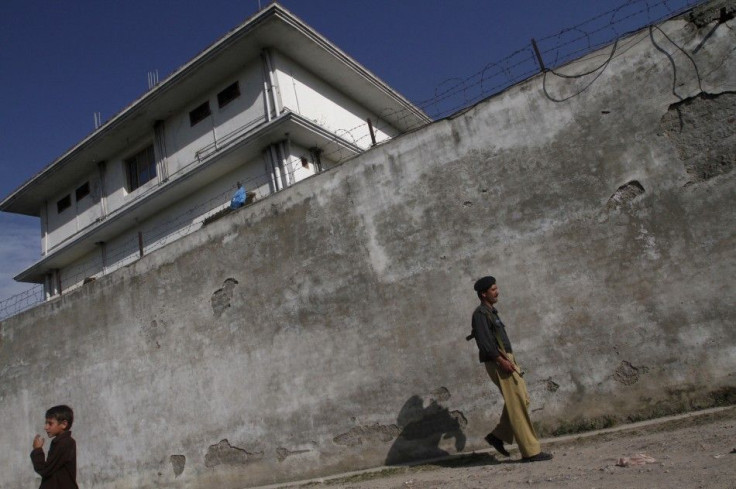Bin Laden Wives: Was 3-Way Love Spat Behind Al-Qaida Leader's Demise?

Reports indicate that some of Osama bin Laden's family members were fearful one of his wives would rat him out to American forces, while the three wives who were arrested at his Abbottabad compound are being put on trial in Pakistan.
Pakistan has charged Bin Laden's three widows with illegal immigration and living in the country without proper documentation.
The three women were captured last May during the Navy SEALs raid on the Bin Laden compound in Abbottabad. The SEALs shot and killed Bin Laden at the scene.
One of women, Amal Ahmed Abdel-Fatah al-Sada, is from Yemen, and the other, Khairiah Saber, is from Saudi Arabia. The third wife's nationality is unclear, reported CBS.
Reports from the Daily Mail indicated that Bin Laden's compound was divided by the three wives, who vied for his attention. On the top floor, Bin Laden shared his bedroom with youngest wife, Amal Ahmed Abdel-Fatah al-Sada. She was considered his favorite. The two married when she was 19 in 1999.
His second wife, Siham Saber, lived in another room and his eldest wife, Khairiah Saber, moved into the compound in early 2011. The jealousy stemmed from perception that Amal was Bin Laden's favorite.
Reports indicated that some of the 28 family members, including Bin Laden's children and grandchildren, who lived in the compound, were convinced that Khairiah would betray al-Qaida's leader.
She is so aggressive that she borders on being intimidating, said Shaukat Qadir, a retired Pakistani army officer who took part in her interrogation.
Amal stayed with Bin Laden after he fled to Pakistan during the U.S. invasion of Afghanistan. She helped arrange for his protection and helped him find places to stay, reported the Daily Mail.
Amal told ISI interrogators after the raid that the couple moved constantly to avoid being captured. As early as 2002, they arrived and hid in Pakistan. They even met with the man who planned the Sept. 11 attacks, Khalid Sheik Mohammed, on March 1, 2003, while hiding out, she said.
In 2004, they moved to Haripur, a town only 20 miles from Pakistan's capital, Islamabad. In 2005, they moved to Abbottabad, where Bin Laden spent his final days.
When Khairiah showed up in 2005, one of Bin Laden's sons, Khalid, questioned her. He wanted to know why she had come to the compound, fearing she would betray them.
I have one final duty to perform for my husband, said Khairiah.
Pakistan's interior minister, Rehman Malik, said that the three widows were charged in court, but did not mention if they had a lawyer, reported CBS. He said the children will be allowed to leave Pakistan, but were allowed to stay for the remainder of the trial.
However, a diplomat told CBS that the trial might be the result of pressure on Pakistan to keep the three women in the country.
It is quite plausible that the Saudis want these people in Pakistan, away from the public eye, the diplomat said. Once they return to Saudi Arabia, they may become a headache for the Saudis, especially if they speak out on events surrounding Osama bin Laden's killing.
The maximum punishment the women can receive is five years in prison. One of their relatives reportedly visited Pakistan, pleading with authorities to let them leave the country.
© Copyright IBTimes 2025. All rights reserved.




















